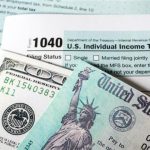Credit Sesame explains how rising bond yields could impact your finances and the economy—and what you can do to prepare.
When it comes to questions about the direction of interest rates, the spotlight is usually on the Federal Reserve. However, recent activity in the bond market may steal the show.
Long-term bond yields behave more similarly than the Fed funds rate to interest rates on long-term loans like mortgages. They also have a greater impact on government finances. That’s why consumers and the government must pay close attention to how sharply bond yields have risen lately.
Falling bond prices push yields higher
Bond yields move in the opposite direction to bond prices. Bonds typically pay out a fixed amount of interest every year. When prices rise, that interest represents a smaller percentage of the bond’s price, making the yield lower. When prices fall, the opposite is true.
This is important because bond prices have been in a funk lately. As a result, bond yields have risen sharply. Since late September, the yield on 10-year Treasury bonds has increased roughly a full percentage point.
This is especially notable because Treasury yields have risen even while the Fed has lowered short-term rates by a full percentage point over roughly the same period. So, despite the attention, the Fed’s rate cuts don’t tell the whole story about what’s going on with interest rates.
What concerns bond investors?
So, if falling bond prices have sharply increased yields, the key question is: what’s bugging bond investors?
Chiefly, there have been two concerns that have driven bond prices lower and bond yields higher:
- Inflation. Higher inflation diminishes the value of future bond payments. So, if bond investors expect higher inflation in the future, they will pay lower prices for bonds.
- The federal budget deficit. Treasury bonds are backed by the federal government. Bond investors become concerned if they sense the government is borrowing too much. Even if bond investors don’t expect the government to default on its bonds, more borrowing causes the government to issue more bonds. This disrupts the supply and demand for bonds, and too much supply leads to lower prices.
Why bond yields matter to consumers and the government
The angst in the bond market matters to more than just bond investors.
Bond yields indicate long-term lending rates for consumers. While bond yields have been rising, so have mortgage rates. 30-year mortgage rates have increased by nearly a full percent since the end of September.
Higher long-term bond yields are also a problem for the government, as Treasury bonds fund the federal deficit. Higher bond yields make it more expensive for the government to borrow, and it borrows a lot.
Inflation hints have already arrived, and investors fear worse
Again, inflation is a significant factor behind the slump in the bond market. In part, investors are reacting to evidence that inflation is already making a comeback.
From July through October 2024, the Consumer Price Index (CPI) increased 0.2% a month. This is a relatively low rate of inflation, and when the inflation rate is stable, it makes life easier for investors, businesses, and consumers.
Then inflation began to heat a little—first a 0.3% increase in November, then a 0.4% increase in December 2024.
Those might seem like small numbers. However, projected over an entire year, going from 0.2% monthly inflation to 0.4% would mean the difference between a 2.4% annual rate of inflation and a 4.9% rate.
Also, the Producer Price Index (PPI) shows rising costs, putting more pressure on businesses to pass some of those costs along to consumers. The PPI rose by 3.3% in 2024, triple the rate from the year before.
This evidence of rising inflation is bad enough, but bond investors are concerned about what happens next. The government’s plans for tariffs, mass deportations, and tax cuts all have strong inflationary elements. The recent upturn in the CPI could be just the beginning.
What consumers should expect
A few months ago, The Fed seemed to have tamed inflation, and the economy was on track toward lower interest rates. Now that things seem to be changing for the worse, consumers must adjust:
- Tighten your budget. Now is a good time to determine what expenses are essential. The best defense against rising prices is to buy less.
- Rein in your borrowing. If interest rates are going to stay higher for longer than expected, this compounds the inflation problem for borrowers. Reducing your debt balances is probably your best shot at paying less interest in 2025.
- Work on your credit score. People with higher credit scores qualify for better credit card and loan interest rates. If interest rates aren’t going to come down across the board, you need to work for every edge you can get.
The bond market, driven by continuous and large-scale trading, is a real-time barometer for inflation and interest rate trends. As bond yields climb, they signal rising borrowing costs and inflationary pressures, making it crucial for consumers to stay proactive—whether by managing debt, improving credit scores, or adjusting budgets—to navigate the shifting financial landscape.
If you enjoyed Rising bond yields: what they mean for your wallet and the economy you may like,
Disclaimer: The article and information provided here are for informational purposes only and are not intended as a substitute for professional advice
Read the full article here
















